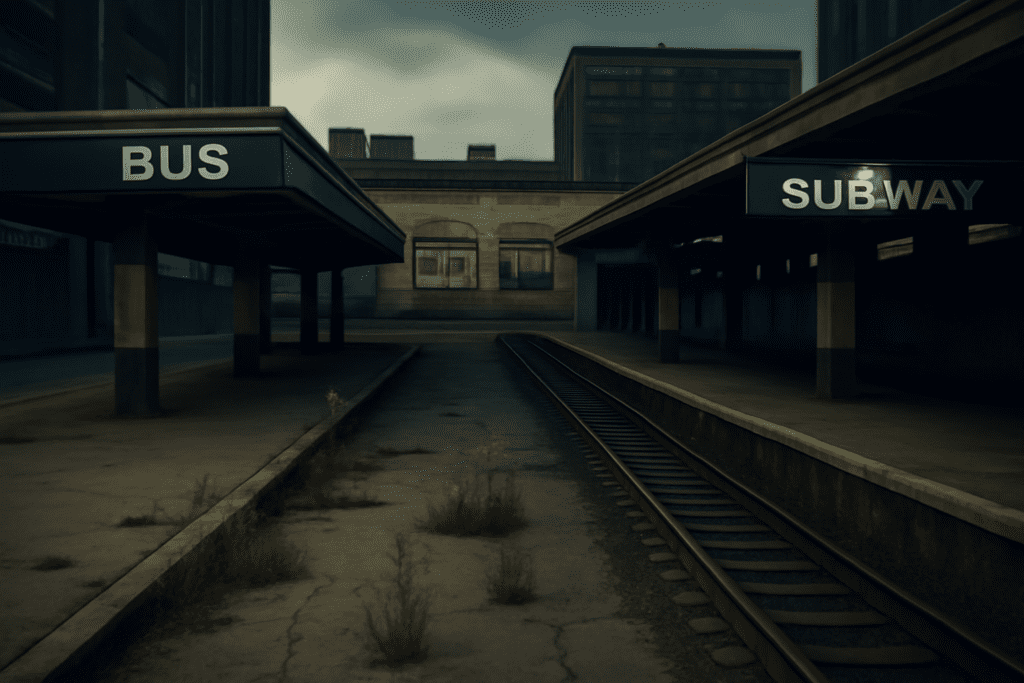A Moment of Reckoning for American Public Transit
Imagine stepping out into the heart of Chicago, Minneapolis, or Dallas two years from now and finding your bus has been canceled—permanently. For millions, this isn’t a doomsayer’s fantasy but an increasingly likely reality. Across the nation, pillars of urban mobility face a looming existential threat driven by funding cuts, political gridlock, and a persistent unwillingness to invest in the public good. The result could be a rapid, destabilizing decline of public transit systems at the very moment cities need them most.
The warning signs flash everywhere. In Chicago, where nearly 500,000 riders rely on local stops for jobs, medical appointments, and schools, a lost decade of incremental reforms has led to a dire ultimatum from the Regional Transportation Authority (RTA): without major emergency funding and governance changes, mass layoffs and gut-wrenching 40% service cuts will hit as soon as 2026. As economist Yonah Freemark argues, failure to act now will “squander billions in economic opportunity, erode access, and harden the scars of urban segregation.”
In Texas, a new bill winding through the legislature—pushed by Rep. Matt Shaheen and supported by a chorus of anti-public sector voices—could slash Dallas Area Rapid Transit’s (DART) funding by a quarter, threatening 30% reductions in both bus and rail services just as the world arrives for the 2026 FIFA World Cup. According to transit analyst Steven Higashide, “Timing couldn’t be worse: cutting transit before hosting a global event is a recipe for gridlock, loss of jobs, and national embarrassment.”
So why do these self-inflicted wounds persist? Who benefits when cities starve critical infrastructure? Time and again, conservative policymakers invoke the language of belt-tightening, but rarely do they acknowledge the ripple effect: mass layoffs, lost productivity, stranded families, worsened congestion, and an ever-narrowing notion of who “deserves” reliable transportation.
Beyond the Bottom Line: The Human and Economic Cost
Every time a bus line is eliminated or a train frequency slashed, the damage reverberates far beyond inconvenience. Data from the Eno Center for Transportation shows that every billion dollars invested in transit yields over 50,000 jobs—directly and indirectly. Cutting funding doesn’t just shrink routes—it shrinks opportunity, especially for those least able to weather the loss.
The evidence is clear in numbers and human stories. Take Chicago—if draconian budget reductions go through, the RTA estimates the region’s GDP could nosedive by $2.6 billion, jobs will vanish, and the city will be left with a transportation network better suited for the mid-20th century than a modern metropolis. As public transit advocate Ben Fried notes, “You can’t have a thriving, equitable city without frequent, affordable transit.”
In North Texas, critics of HB 3187 warn that stripping DART of up to 25% of its sales tax support means thousands of pink slips. North Texas Commission CEO Chris Wallace said, “These are head-of-household jobs—mechanics, drivers, cleaners—that build strong communities. Hurting transit means hurting the backbone of our workforce.” The looming reductions would arrive just as Dallas is thrust onto the world stage, risking massive travel bottlenecks and a showcase of short-sighted governance. Who pays the price? The single parent unable to get to work, the vulnerable senior who loses her only affordable transport, the city’s reputation itself.
A closer look reveals a deeper ideological battle. Public transportation, once understood as an investment in collective well-being, has become a pawn in fiscal austerity games. Opponents elevate the myth of the “self-reliant commuter” while ignoring that transit represents economic empowerment, racial equity, and access to basic freedoms.
“Public money invested in transit does far more than move people from point A to point B—it knits cities together, creates opportunity, and signals that all residents matter, not just those with cars in the driveway.”
Right now, as experts from Brookings Institution to the Harvard Kennedy School point out, our cities can either reinforce a cycle of decline and inequality or break the mold by embracing abundance. The “abundance agenda”—championed by urbanists like Jerusalem Demsas—calls for ending scarcity mindsets, dismantling outdated regulations, and seizing the chance for bold, inclusive investment in transit, housing, and healthcare.
Emerging Alternatives: Where Hope—and Caution—Collide
Not all is lost. Minnesota’s Twin Cities offer a laboratory of both promise and perils. The revived Bus Rapid Transit (BRT) plan for St. Paul’s West 7th Street is intentionally “defederalized“, bypassing bureaucratic paralysis in Washington and betting instead on state and local leadership. As St. Paul City Council member Mitra Jalali put it in a recent interview, “This is about restoring faith that government can respond to urgent needs—without waiting decades for federal permission.”
Still, wrenching transitions risk new forms of exclusion. The Metropolitan Council’s decision to replace the Northstar Commuter Rail with bus service may better fit post-pandemic travel, but advocates caution that hurried changes, without robust public buy-in, often leave marginalized groups behind. Disability rights leader Jeremy Opperman’s work with Metrorail in Cape Town is a sobering reminder: adding wheelchair spaces does little if stations and platforms remain inaccessible.
Public engagement is not a box-checking exercise; it’s vital infrastructure in its own right. As the Metropolitan Council gathers feedback through surveys and town halls this spring, all eyes are on whether these new models can expand—not curtail—access and trust. Cities like St. Paul have a rare chance to reverse decades of neglect and deterioration, but only if they anchor their plans in equity and accountability.
Ultimately, this is a political choice as much as a technical or financial one. Gallup’s polling consistently finds broad public support for investing in mass transit. The question is whether leaders have the courage to heed the call. Will they invest in abundance, or double down on austerity and exclusion? The coming years will answer that, with profound consequences for urban justice, economic opportunity, and democracy itself.

